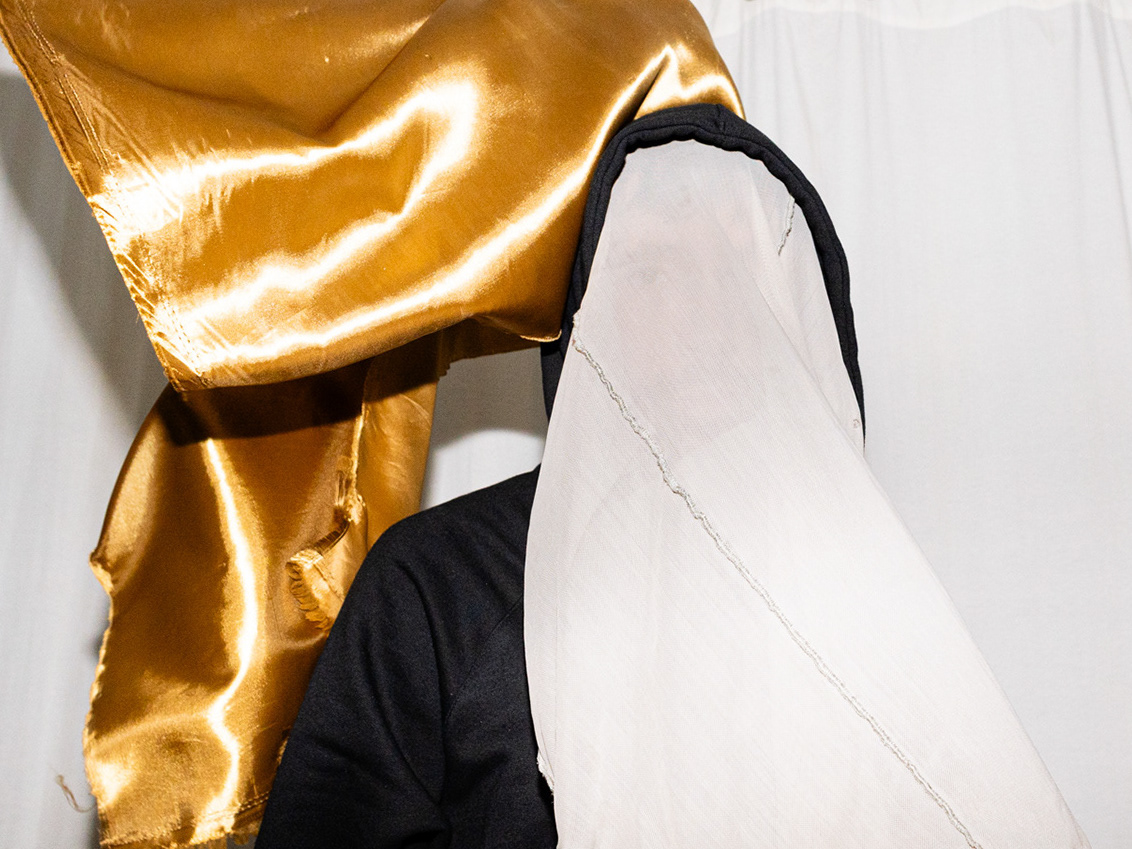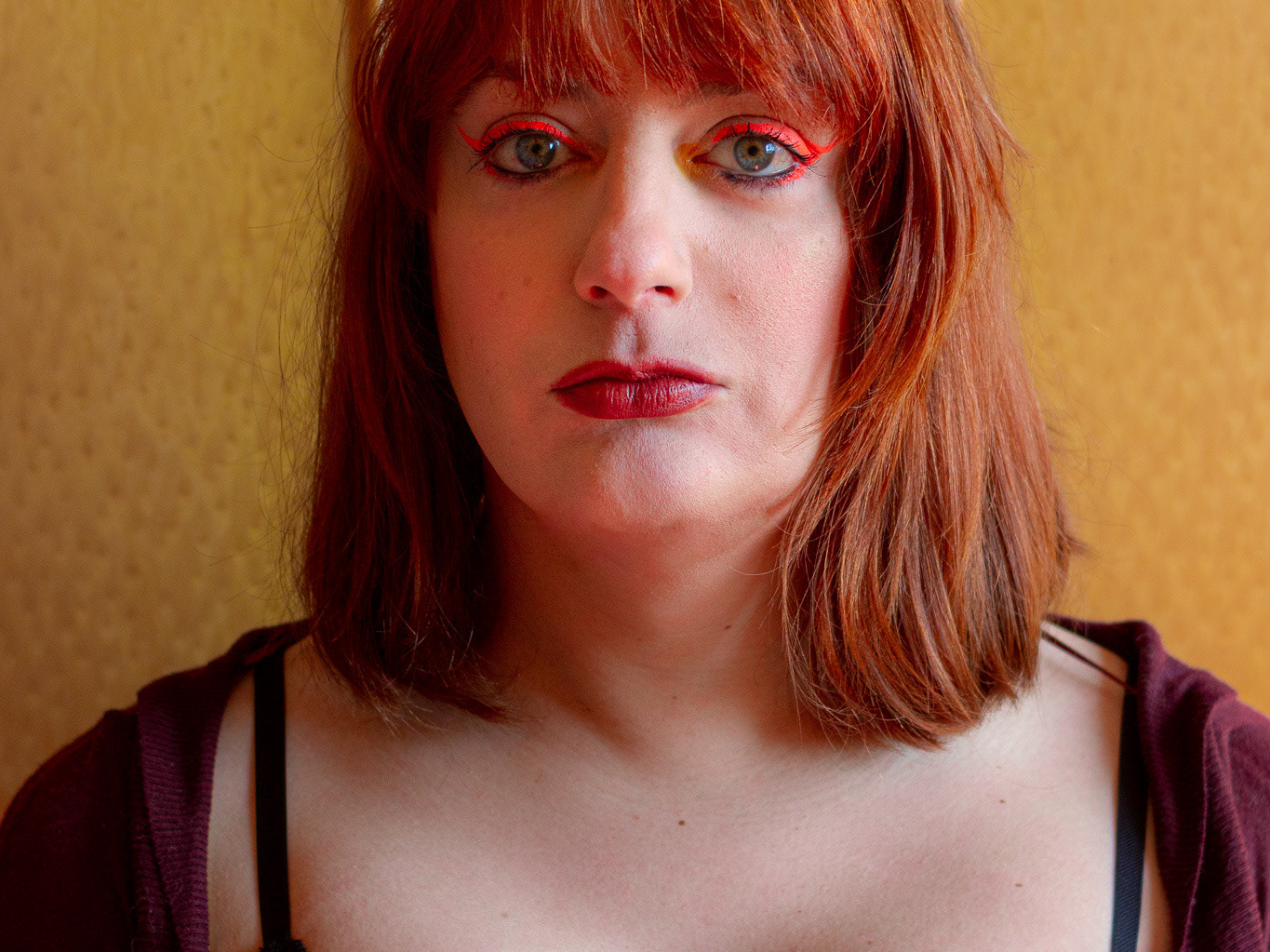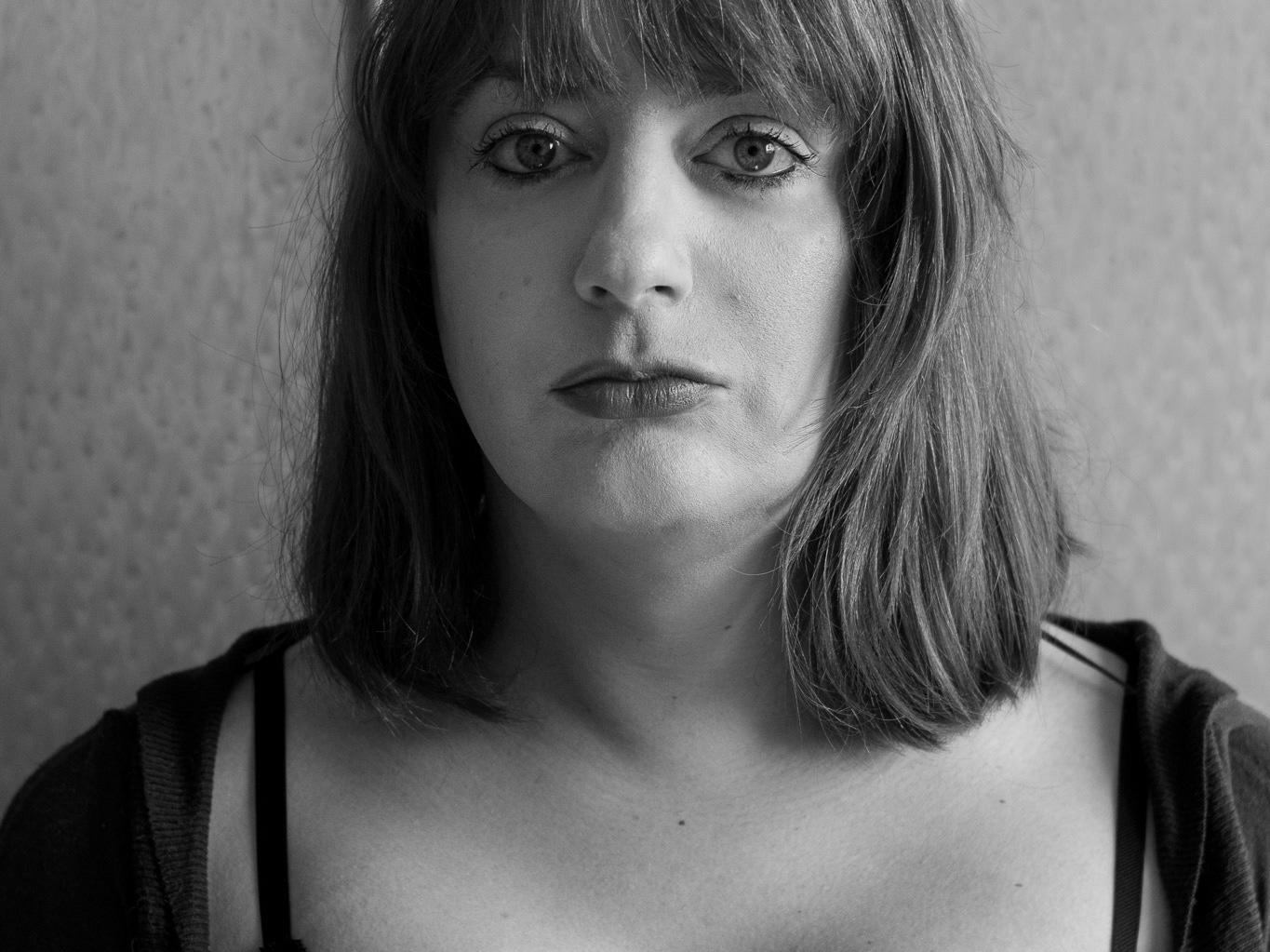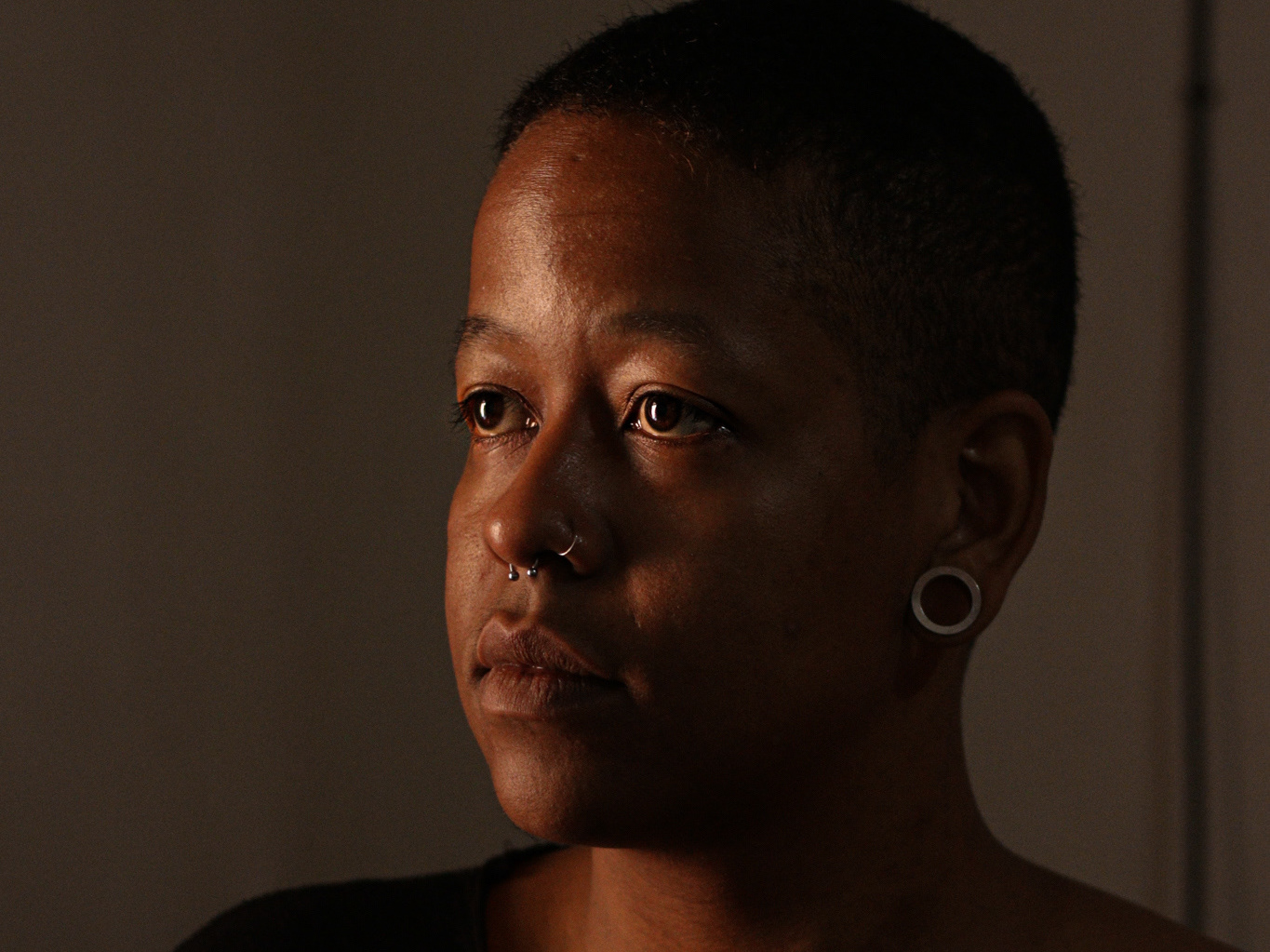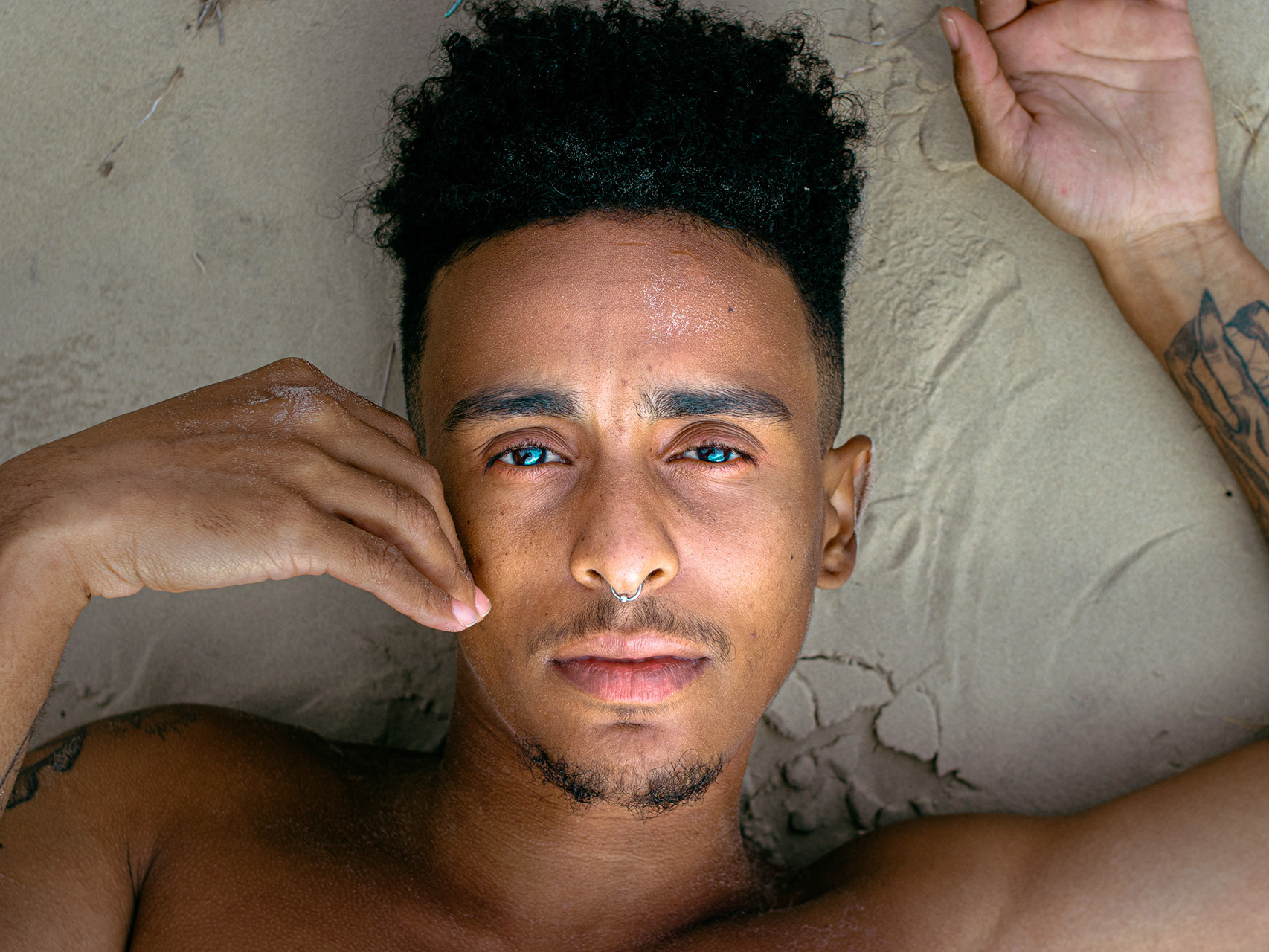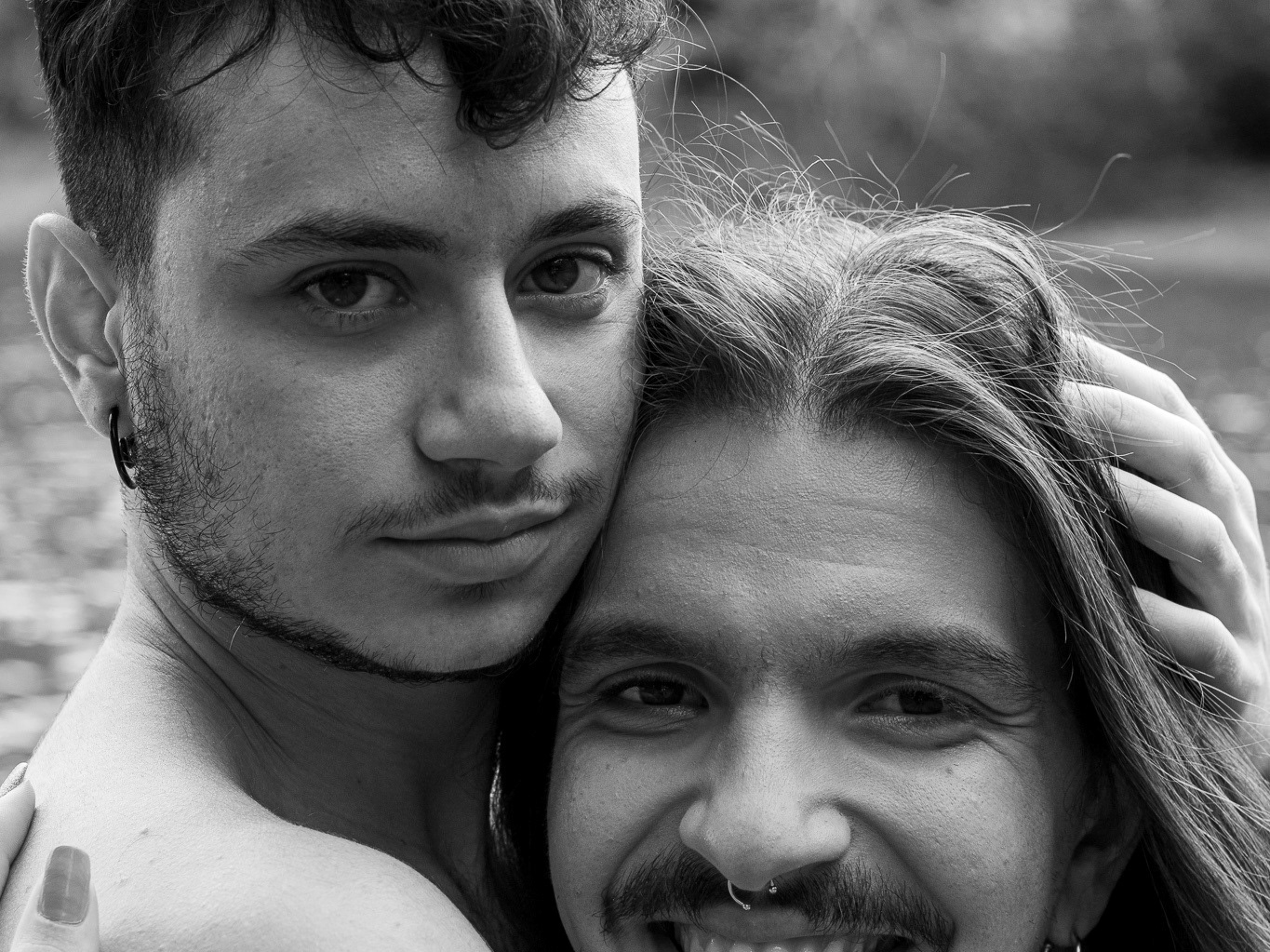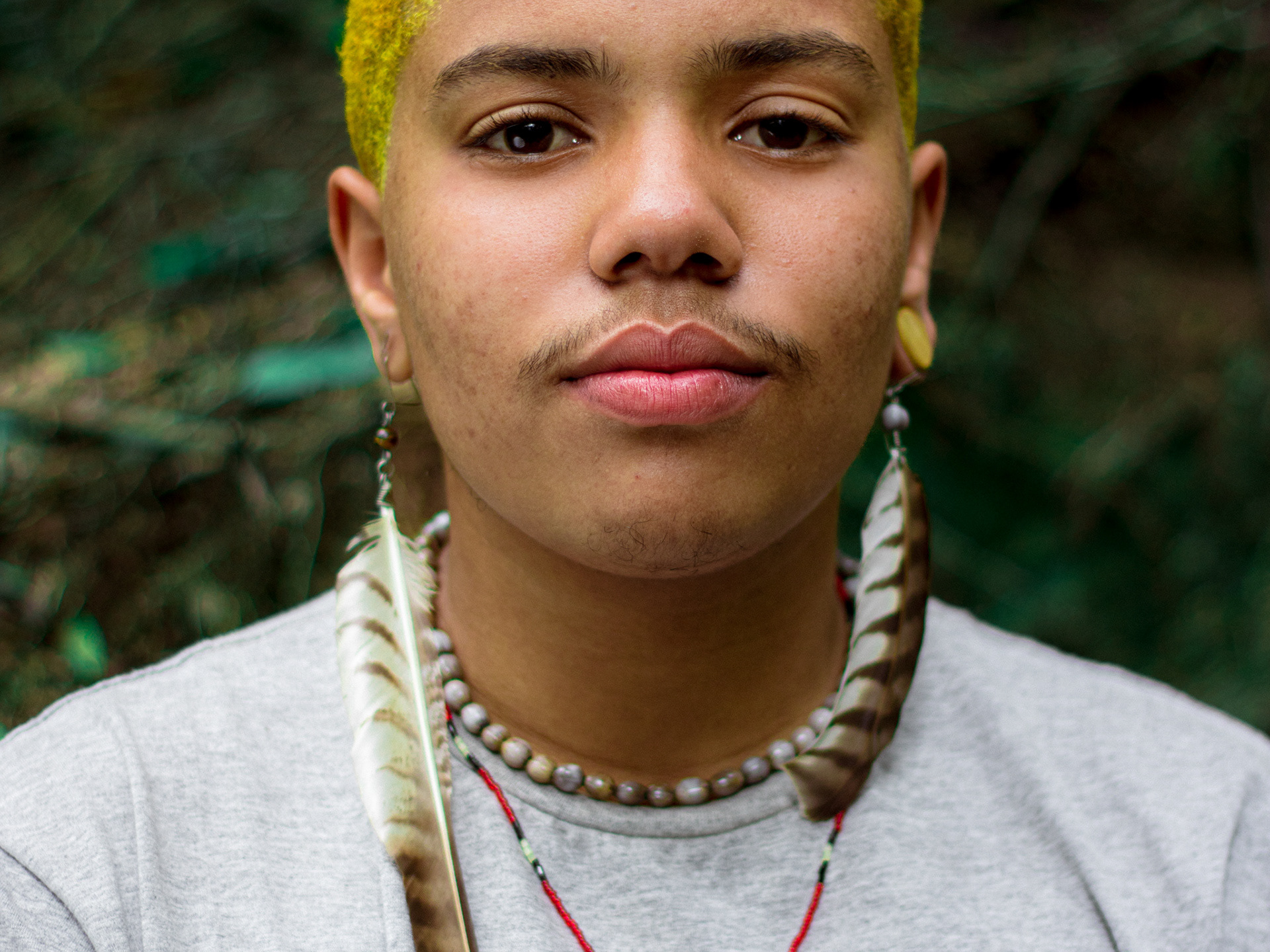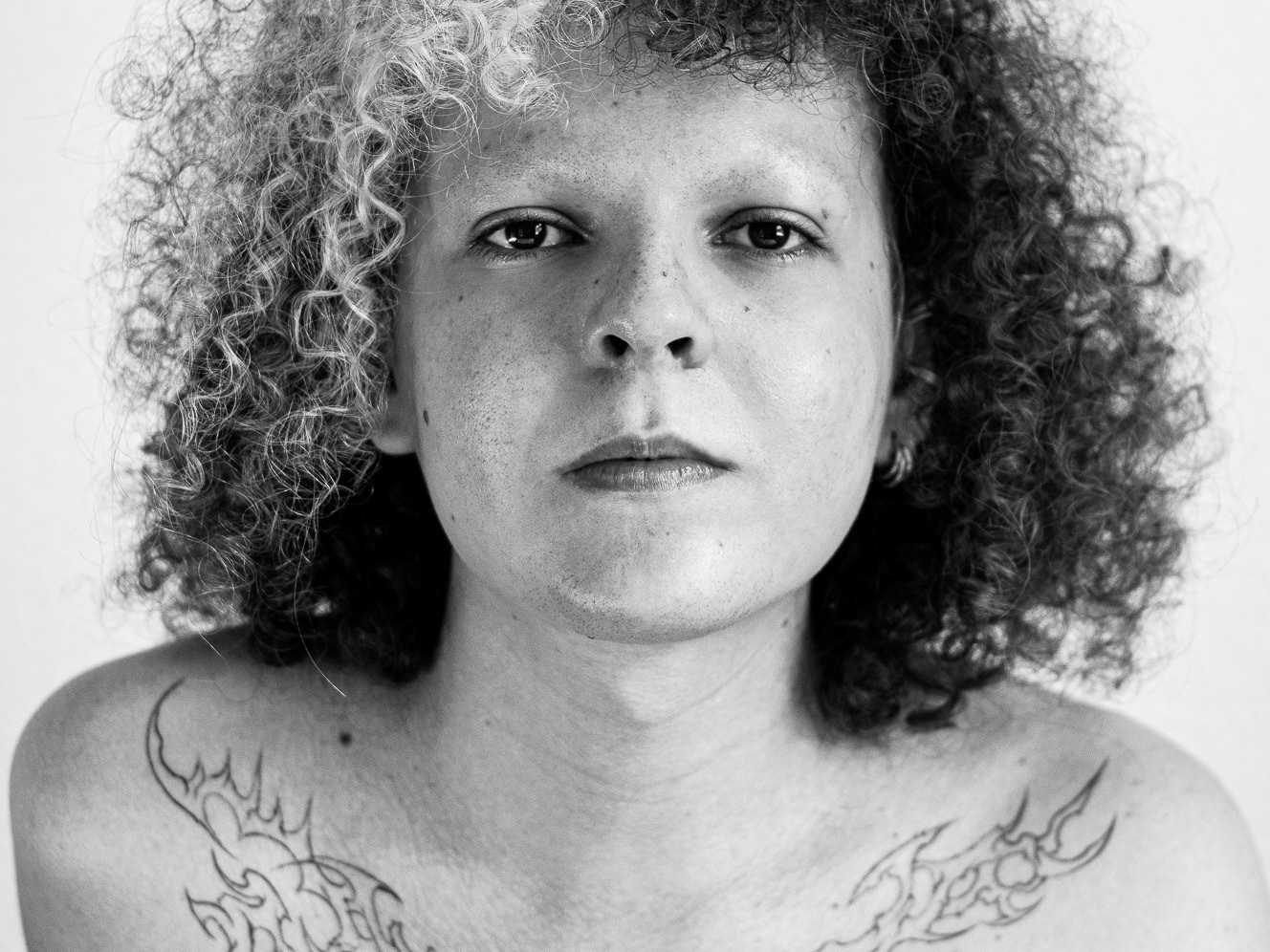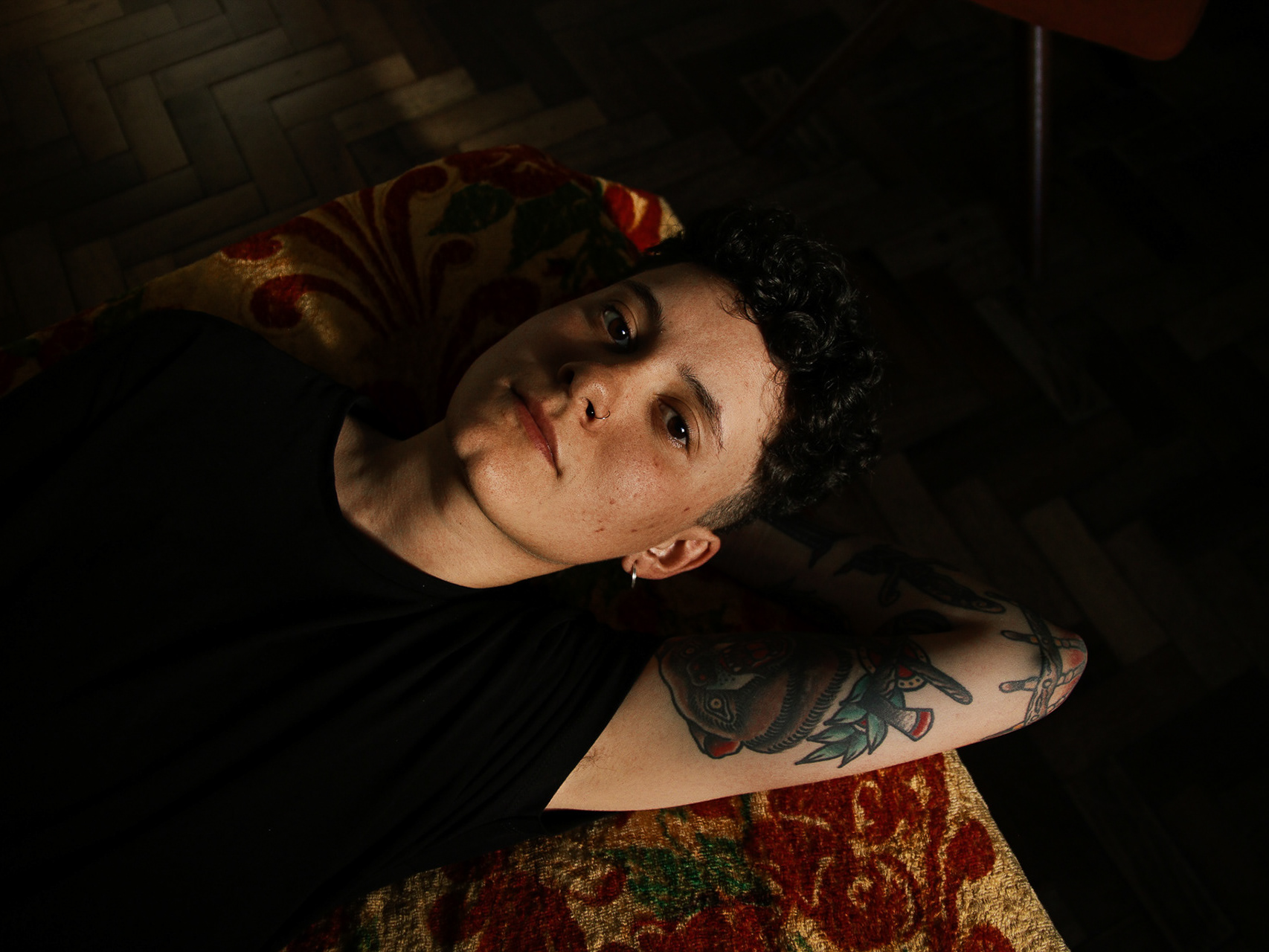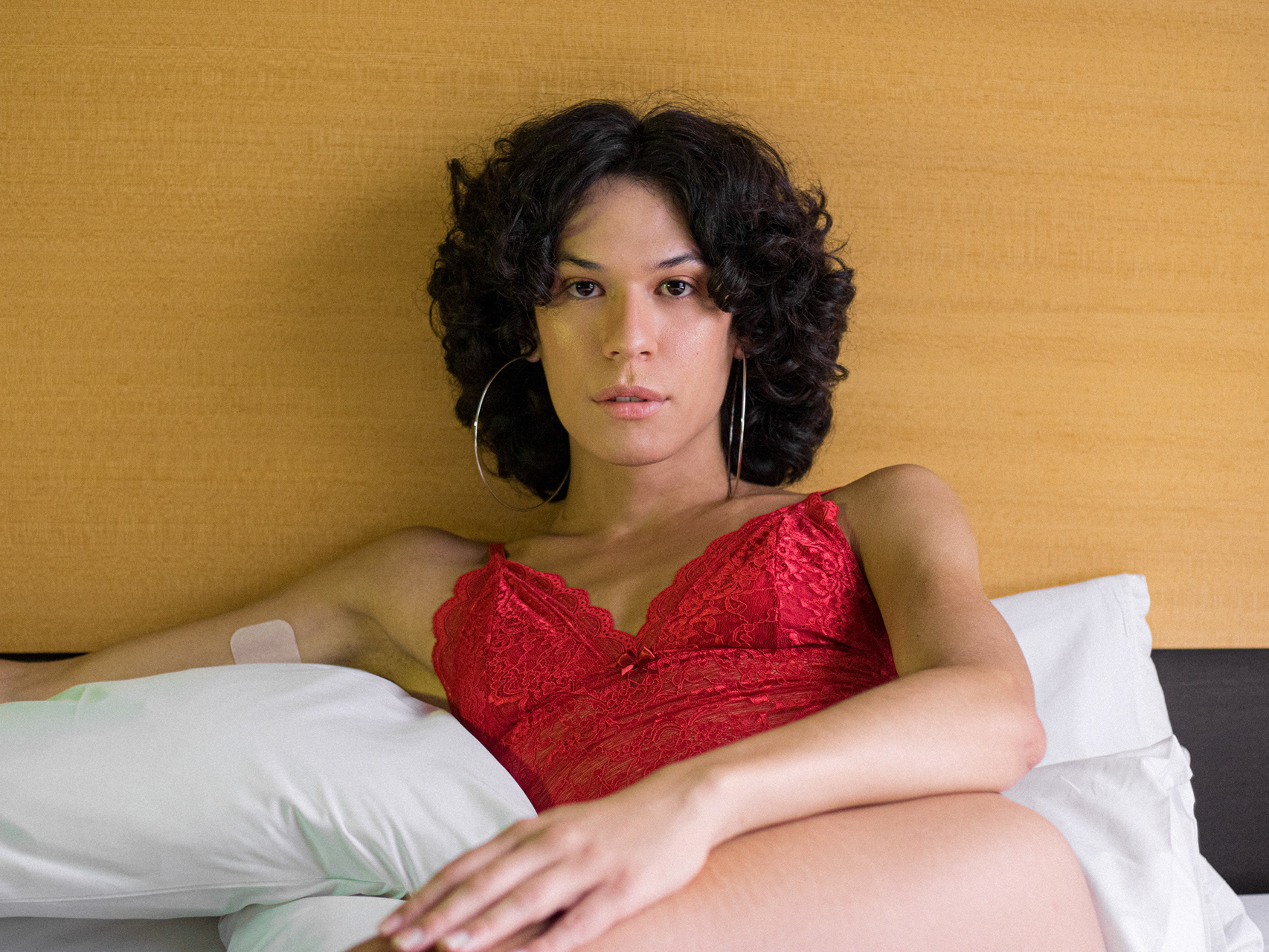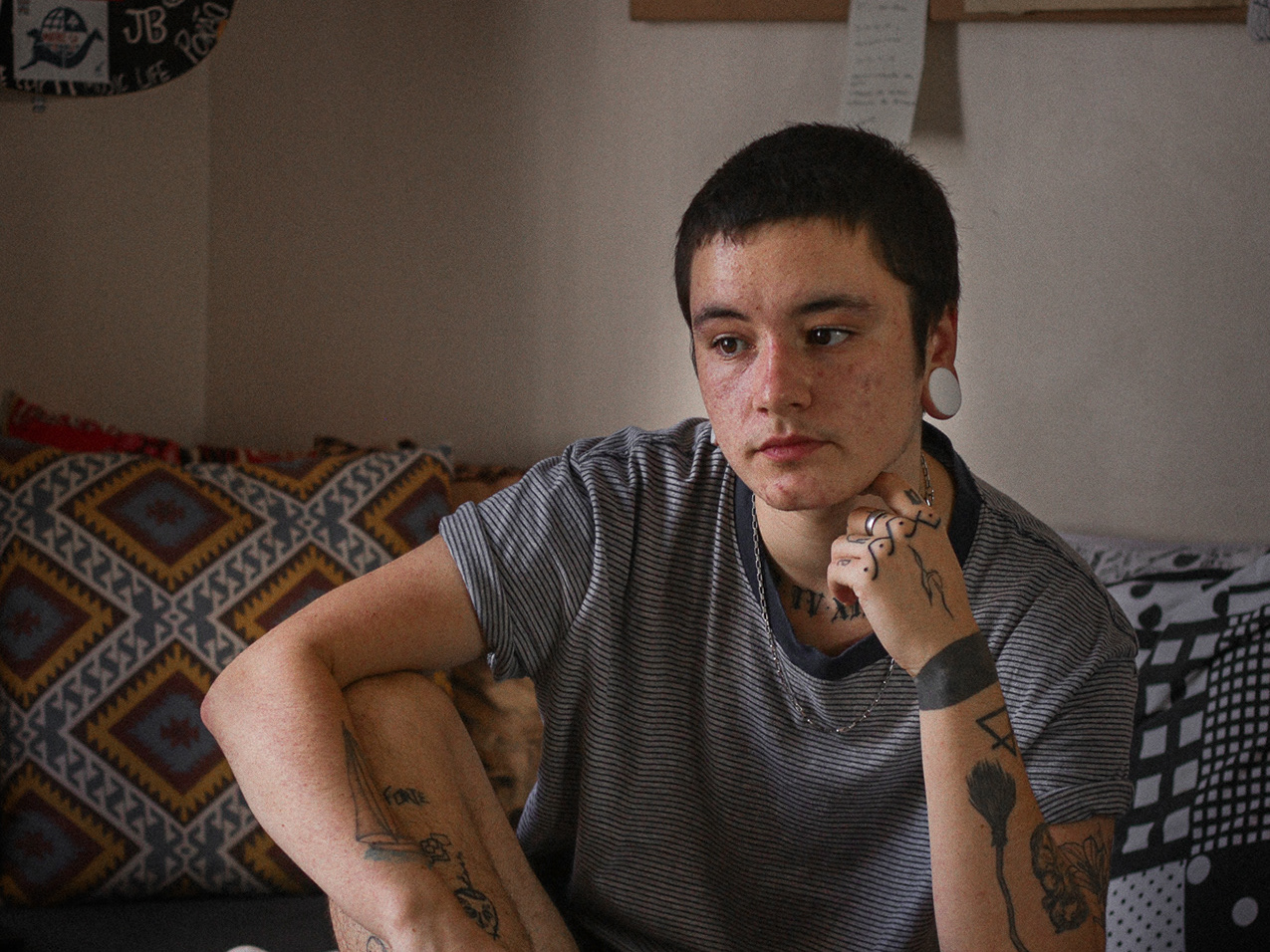After I moved to Porto Alegre at 18, I gradually started exploring the things I used to mask while I was still living with my parents. And then, when I came to Porto Alegre, especially when I started living alone, I began experimenting with things that made my gender expression align more with what I wanted to show the world—the way I wanted to present myself to society and to myself, you know? And that wasn’t just in a visual or fashion-related way, like wearing makeup or putting on a dress and heels, but also in the way I think, behave, feel, and express my emotions. So, this went beyond social rules, social constructs, and social perception. It allowed me to explore more deeply how I feel, how I see the world, and how I see myself. So, it was around that time that I started to open up and free myself.
I always forced myself to wear a mask, to go out in a way that made me as unnoticed and invisible as possible. Over time, I began exploring things that had been denied to me, things I was told I couldn’t do—like wearing makeup, wearing “feminine” clothes, sitting a certain way, gesturing a certain way, speaking in a certain manner, things that were always put in the “woman” box and that I wasn’t allowed to access. Little by little, I started reclaiming those things that had always been a part of me. Since my early years of socialization, I didn’t have a strict line dividing masculine and feminine. Everything was always blended together inside me. And it became something else. The things I had the freedom to do as a child—like playing with dolls and doing things society told me I couldn’t—were gradually suppressed and put to sleep within me. Until I grew up, gained independence, and realized that no one had control over me. Only I had control over myself. And that’s when I started to evolve.
In the beginning, it was hard. I would leave the house with my head down, feeling like the whole world was watching and judging me—and maybe they were. But that was when I started searching for courage within myself and growing stronger. People in my life helped me through this moment. My relationship at the time helped, and so did my living situation—I was sharing an apartment with my older brother and my sister-in-law. She loved makeup, and I would watch her do it and started learning from her. Sometimes she would see me leaving the house with makeup on, but I’d walk out with my head down, mumbling, “Bye, I’m leaving.” One day, she stopped me and said, “You don’t need to hide. You don’t need to hide from us. You don’t need to hide from anyone. We know you wear makeup, we know you dress the way you want, and you don’t have to hide. Just be who you are because no one here is judging you.” And alongside that came conversations about my sexuality too—it wasn’t just about gender identity, but also discovering more about my sexuality, which I define as pansexual.
In the beginning, it was hard. I would leave the house with my head down, feeling like the whole world was watching and judging me—and maybe they were. But that was when I started searching for courage within myself and growing stronger. People in my life helped me through this moment. My relationship at the time helped, and so did my living situation—I was sharing an apartment with my older brother and my sister-in-law. She loved makeup, and I would watch her do it and started learning from her. Sometimes she would see me leaving the house with makeup on, but I’d walk out with my head down, mumbling, “Bye, I’m leaving.” One day, she stopped me and said, “You don’t need to hide. You don’t need to hide from us. You don’t need to hide from anyone. We know you wear makeup, we know you dress the way you want, and you don’t have to hide. Just be who you are because no one here is judging you.” And alongside that came conversations about my sexuality too—it wasn’t just about gender identity, but also discovering more about my sexuality, which I define as pansexual.
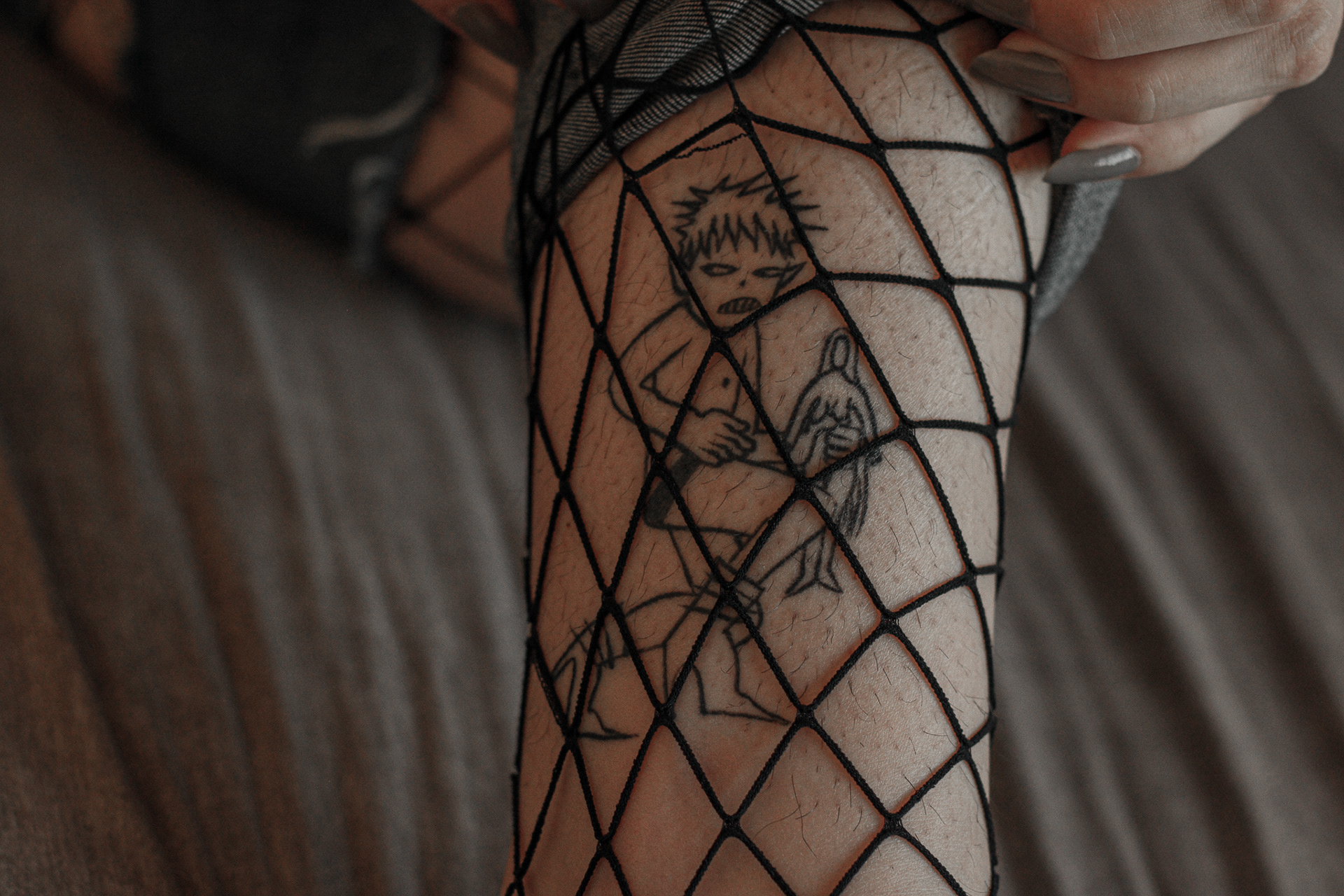
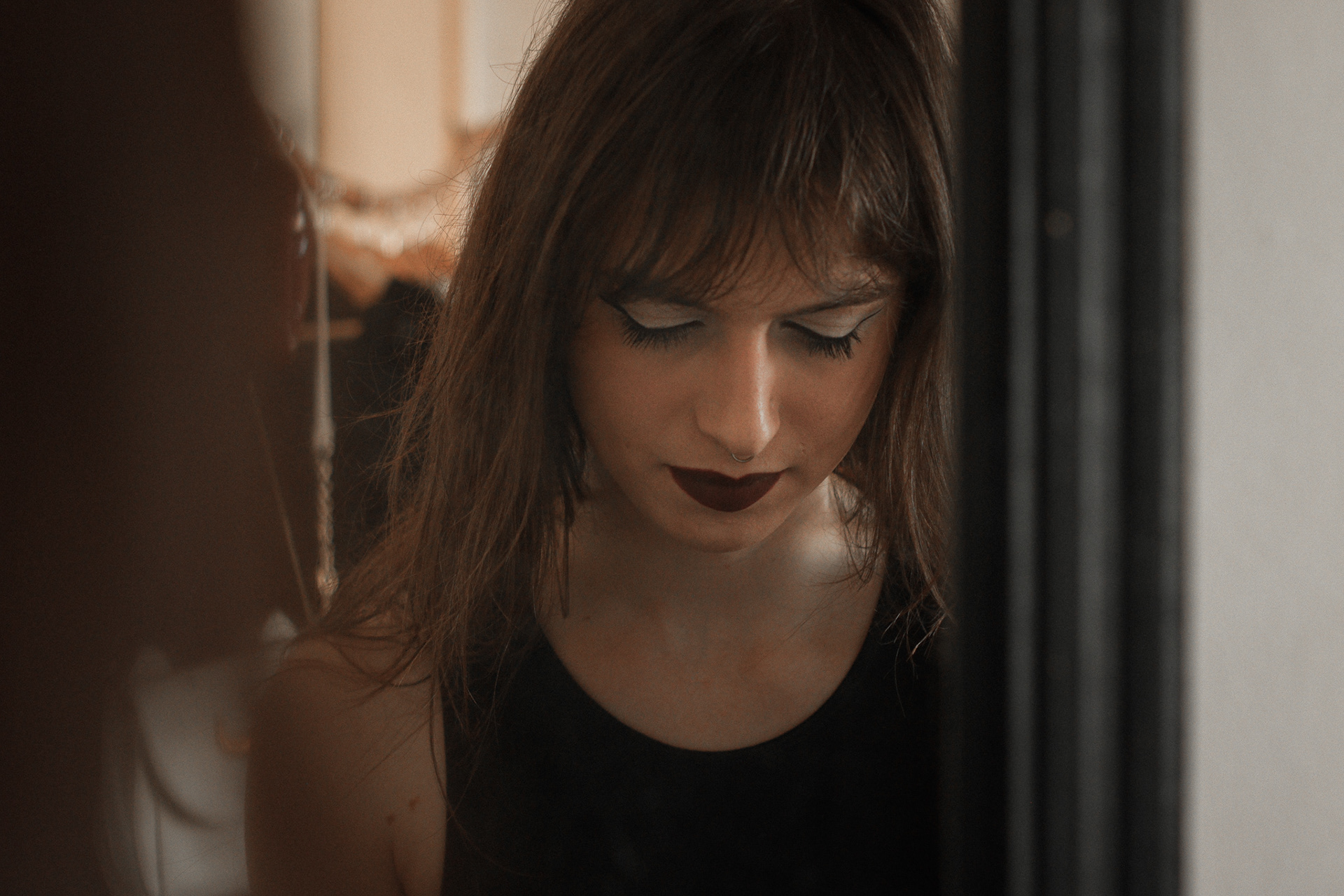

I identify as trans non-binary… but I still have my questions. I’ve been reflecting a lot on this—how much I align with something binary, even though I see trans non-binary as the best fit for me. But I still struggle with doubts, like when people refer to me as “he” or “she.” I like both, but at the same time, I’m unsure how close I want to be to “she.” So, it’s still a work in progress, you know?
I don’t think there’s a real “fluidity” because I am who I am—I remain the same person. This identity isn’t something that changes day by day or situation by situation. I think it does change, but in a bad way… because sometimes I go out presenting more “masculine” because I feel like I’ll be exposed in certain situations. So, when there is fluidity, it’s often because I feel the need to mask myself. I also feel very comfortable using masculine pronouns because they were assigned to me at birth. I was conditioned to use them, so it still feels like a safe place. I discuss this a lot with my therapist—how much I still use masculine pronouns or present in a masculine way because I was conditioned to do so and because it keeps me in a place of comfort. I still question this a lot. With people closer to me, I’ve started testing the use of feminine pronouns to see how I feel. I’ve been using feminine pronouns for myself sometimes, too, and I feel good about it, but I’m still unsure how much I align with a binary identity. It’s very complex, very abstract—it’s a bit of a storm inside my head.
I don’t think there’s a real “fluidity” because I am who I am—I remain the same person. This identity isn’t something that changes day by day or situation by situation. I think it does change, but in a bad way… because sometimes I go out presenting more “masculine” because I feel like I’ll be exposed in certain situations. So, when there is fluidity, it’s often because I feel the need to mask myself. I also feel very comfortable using masculine pronouns because they were assigned to me at birth. I was conditioned to use them, so it still feels like a safe place. I discuss this a lot with my therapist—how much I still use masculine pronouns or present in a masculine way because I was conditioned to do so and because it keeps me in a place of comfort. I still question this a lot. With people closer to me, I’ve started testing the use of feminine pronouns to see how I feel. I’ve been using feminine pronouns for myself sometimes, too, and I feel good about it, but I’m still unsure how much I align with a binary identity. It’s very complex, very abstract—it’s a bit of a storm inside my head.
My family has always been very affectionate since I was little. At first, I was allowed to play however I wanted. Of course, sometimes there were comments like, “Oh, don’t do that, that’s for girls,” or “Don’t gesture like that,” or “Don’t sit with your legs crossed.” These boxes started appearing within my family too, because they’re a more traditional family, from the countryside. It never came from a place of hatred, but from a place of conservative learning—the way they were taught. So, at first, these boxes existed within my family, but they became much stronger in society—when I started facing prejudice, receiving stares. I think the reason I started closing myself off had more to do with the external world than with my family environment because I withdrew and used those masks at home too.
I made sure my family didn’t enter my world or see how I expressed myself—to protect them and to protect myself. So, I created this mask as a reflection of the outside world, of how people would look at me with disdain when I presented in a way that didn’t match the sex I was “born” with, so to speak. And now, I’m having to do the reverse process—opening up again, bringing out the things I once hid. It’s almost like revisiting the freedom I had in childhood. And my family is relearning it too. They once saw me in this free and pure way when I was little, and now they have to see it again because I’m starting to shed the masks I used to wear. And this came with my independence—moving out, being in a space where I could see myself, where I didn’t have to play a role I thought I had to play to protect others or avoid causing stress or trouble.
I have three siblings—it’s a pretty big family. I never wanted to be a burden; I never wanted to be a problem. And that’s the problem—the fact that I’m not a problem. I don’t have a problem. I’m not sick or anything. It took me a long time to accept that, to understand it—that I’m not a problem, that I’m normal, that I’m not different, you know? So, I’m in this process of normalizing myself, and my family is sort of walking this path with me, normalizing it too. And it’s been productive. They already understand my new name, but they’re not used to it yet.
They still call me by my old name, but that’s okay—I know it’s a slow process. I recently talked to my mom about it. I still want to update my documents. They still use my old name, but from now on, I’ll start correcting them to introduce my new name. It’s a process I went through with my friends—most of them knew me for years by my old name, and I kept reminding them, and eventually, they got used to it. My new workplace already knows me by my new name, which makes me really happy.
It’s a very sad reality because we are mostly seen in a very negative light. We live in a very conservative place, and I feel like prejudice is still very strong here. But at the same time, I see positive things happening. There are still some spaces where people can feel comfortable and express themselves. But I don’t know… I’m a pretty reserved person, so I protect myself a lot in my daily life. It’s complicated because sometimes I receive very positive experiences being trans non-binary in Porto Alegre, but other times, I face very negative ones too—it’s an endless battle.
I feel like I’m often looked at strangely in public, depending on the place—like if I go to a bar or somewhere that isn’t very open-minded, I feel extremely observed. But sometimes, positive things happen too—people approach me, compliment me, and tell me that, in some way, I inspire them. So… I don’t know, I feel like I’m complicating my words here. I haven’t gone out much—I stay home a lot, to protect myself. My whole life, I’ve felt like I was seen in a bad light. It’s rare for someone to see me in a good way, but when it happens, it feels amazing.
It’s a very sad reality because we are mostly seen in a very negative light. We live in a very conservative place, and I feel like prejudice is still very strong here. But at the same time, I see positive things happening. There are still some spaces where people can feel comfortable and express themselves. But I don’t know… I’m a pretty reserved person, so I protect myself a lot in my daily life. It’s complicated because sometimes I receive very positive experiences being trans non-binary in Porto Alegre, but other times, I face very negative ones too—it’s an endless battle.
I feel like I’m often looked at strangely in public, depending on the place—like if I go to a bar or somewhere that isn’t very open-minded, I feel extremely observed. But sometimes, positive things happen too—people approach me, compliment me, and tell me that, in some way, I inspire them. So… I don’t know, I feel like I’m complicating my words here. I haven’t gone out much—I stay home a lot, to protect myself. My whole life, I’ve felt like I was seen in a bad light. It’s rare for someone to see me in a good way, but when it happens, it feels amazing.
I think makeup came into my life through my first experiments with gender expression, which is often seen as more androgynous. But I have some issues with that term because I feel like it sometimes excludes certain people. I try not to see it through the lens of androgyny because there’s this idea that you’re either born androgynous or you’re not, or that it’s a matter of nature, which ends up excluding those who want to express themselves in a more "feminine" or "masculine" way. It intersects with ideas of passability. It’s that whole Greek statue aesthetic—a vision of beauty that I find problematic.
I started wearing makeup a lot during these experiments. I really like drag queens—two of my friends are drag queens, and I’ve followed their journey since they started performing. I would watch them do their makeup and explore it artistically, and I found that really fascinating. So I started experimenting with makeup in all sorts of ways—artistically, as part of my identity, and aesthetically. I began watching a lot of makeup videos and shows, learning from people who talk about it. Over time, it became an artistic passion. Eventually, I also realized that it was therapeutic—just sitting down and doing my makeup for two hours, playing with colors and shapes, experimenting with outfits and characters.
This connection to makeup also came through theater. I really developed my skills when I was doing theater, even doing other people's makeup for rehearsals and performances. I became known as the go-to person—“Ask Kim to do your makeup; they know what they’re doing.” That’s when I started sharing my knowledge, helping others create their characters while also building my own. I started experimenting more seriously around 20, and it’s only grown since then.
I usually do my makeup on weekends or for special occasions, or whenever I want to try something new. Recently, I’ve started making videos for Instagram to share my process with others. Sometimes it’s dramatic makeup, other times it’s more natural—purple, pink, blue, whatever I feel like. It’s also a way for me to document my progress, to see how I’m evolving. Plus, I love video editing, so this merges two interests: capturing and editing visuals. Who knows where this will go?
For a while, I was thinking about creating a persona—kind of like my drag queen friends—something that would allow me to explore makeup and start performing again. I miss being on stage, rehearsing, building scenes, creating stories. Makeup has filled part of that void, but it might also be key to this new process of character-building and performance.
My relationship with my body is quite positive. I see a lot of people struggling with their bodies, and I try to learn from their experiences, reminding myself to see my body with love. Of course, there are things that make me uncomfortable, but I try to appreciate the little parts of myself. I take care of my body because it’s my home. This mindset started in my teenage years. When I was 16, I had a severe anxiety attack that turned into a full-blown panic disorder. That changed me a lot—I started thinking about death, aging... I’ve always been a hypochondriac, with deep fears about my internal health rather than my outward appearance. My anxiety revolves around what’s happening inside my body.
I work hard—not to eliminate fear, but to manage it better. I have an anxiety disorder, and sometimes I have episodes. I take antidepressants to keep my brain chemistry balanced so that I don’t spiral into depression, which has happened before. But lately, I’ve been feeling good because I’m actively working on my mental health. So my relationship with my external body is positive, but I still have work to do regarding my internal fears.
I’ve internalized so much throughout my life, and these things have to come out somehow. My first anxiety attack as a teenager was a direct result of bottling things up—especially stress. And gender plays a huge role in this. For years, I repressed my gender expression, which built up inside me like pressure. Now, I express it freely, but that brings new stress. Society confronts me—I face discrimination, disrespect—which causes sleepless nights, stress, anxiety. I’m still fighting to manage that. Sometimes I feel anxious just leaving the house, interacting with people. It all accumulates, and suddenly, I’m having a panic attack out of nowhere.
Physical symptoms of anxiety are especially difficult for me. Being a hypochondriac, I’m terrified of illness, of dying, of fainting—irrational fears that have built up over time. The fact that I exist as myself and present myself to the world also brings pain, because it exposes me to negativity that later manifests as anxiety attacks.
I’ve learned to accept this as part of me. If you have anxiety, depression, or any mental health issue, the key is to acknowledge it and find ways to cope. For a long time, I was angry—“Why do I have anxiety? Why am I like this?”—but that doesn’t help. You have to be strong.
•
•
•
A bit of a chaotic thought, but I think the future of gender is to destroy gender.
I’ve encountered some interesting concepts around this, and there’s an artist I really admire who identifies as post-binary. They talk a lot about the destruction of gender, which I find fascinating.
I believe the future of gender is about showing people that they have minds, too. The future is about understanding that our minds are vast, capable of shaping behavior, expression, and emotion—things that don’t have to be tied to rigid biological categories. The future of gender is expanding minds and bodies, freeing ourselves from outdated constraints, from the idea that we must police our own identities. It’s about liberation.
A message?
Know your body, love your body. Know your mind, love your mind. Know your voice, love your voice. You are not alone.
I have a very realistic perspective, which can sometimes feel pessimistic—because reality is harsh. But before we talk about happiness and freedom, I think people need to acknowledge that their journey will involve pain, isolation, loneliness. And those moments are just as important as joy. In those moments, you discover things about yourself that make you stronger. They give you courage.
The key is not to give up. Always put yourself first. Seek liberation, be who you truly feel you are. The bad moments will pass, and when the good ones arrive, they’ll be even better. Every feeling has value—sadness is just as meaningful as happiness. It can teach you crucial lessons.
At the end of the day, we only have this one life. This is our only chance. If we don’t do something with it, it slips away.
I feel a responsibility to engage with reality, to truly live it. I spent so much time masking things—pretending, suppressing—that I refuse to do that anymore. I won’t sugarcoat life with artificial happiness. Insight doesn’t come only from joy. Consciousness doesn’t come only from joy. Growth doesn’t come only from joy.
Moments of sadness, solitude, and every other emotion are all essential in shaping who we are.
Kim Flores.
1994.
Graduated in Graphic Design and passionate about makeup.
I share my experiences through photography and audiovisual.
Non-binary trans.
Any pronoum.
@kimfloresx
*essay from March 2020, Porto Alegre (RS), Brazil.
1994.
Graduated in Graphic Design and passionate about makeup.
I share my experiences through photography and audiovisual.
Non-binary trans.
Any pronoum.
@kimfloresx
*essay from March 2020, Porto Alegre (RS), Brazil.
-
ser trans portrays and creates space for trans, travesti, and non-binary people to be the protagonists of their own stories, rethinking a Brazilian trans archive.
A project conceived by Gabz 404.
SUPPORT THIS WORK